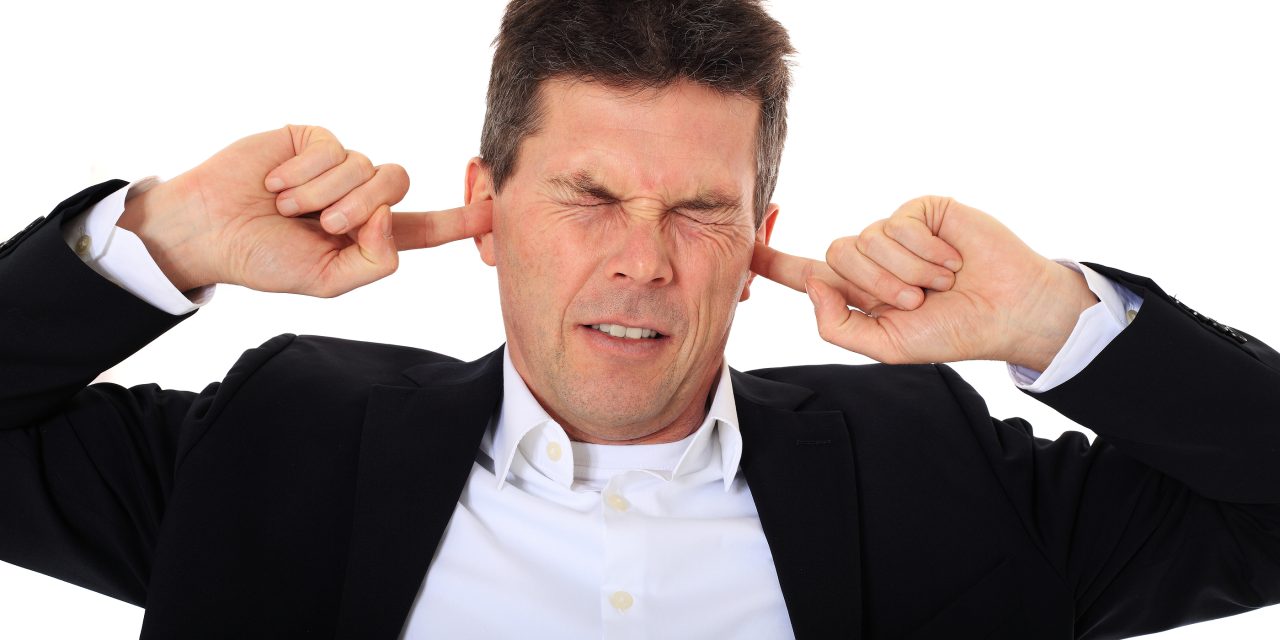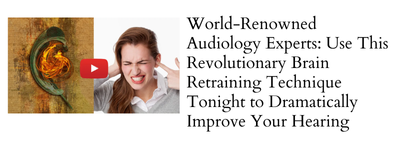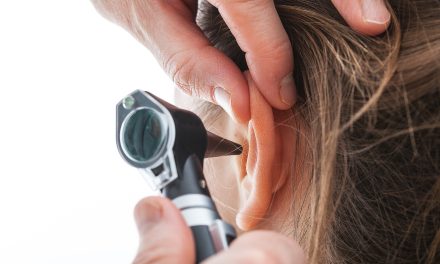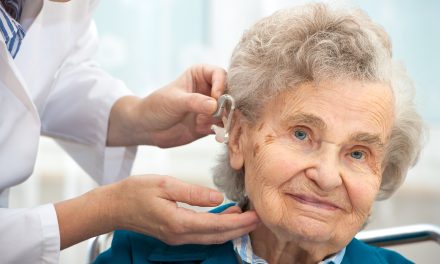Tinnitus is often described as a ringing in the ears, yet its origins are more complex than just hearing noises.
Tinnitus typically starts in the nerve pathways of the ear, where changes in spontaneous activity can lead to the perception of sound when none is present.
Various factors can trigger these changes, including exposure to loud noises, ear infections, or age-related hearing loss.

The pathophysiology of tinnitus involves complex neural mechanisms.
Research has shown that tinnitus can develop from alterations in neural activity along the auditory pathways. This might begin with damage in the inner ear and progress through the brain’s processing centers.
A detailed exploration of how tinnitus is generated reveals that these changes in activity affect how sound is perceived.
Those dealing with tinnitus may experience different kinds of sounds, from hissing to buzzing, and these sounds can vary in frequency and intensity.
The condition’s impact on daily life can be significant, with sufferers facing challenges like sleep disturbances and concentration difficulties.
By better understanding how tinnitus originates and functions, individuals can explore effective strategies for managing the symptoms and improving their quality of life. For more insights, consider exploring the thoughts on the origin of tinnitus.
Key Takeaways
- Tinnitus often starts with changes in the ear’s nerve pathways.
- Neural activity changes play a crucial role in tinnitus perception.
- Managing tinnitus involves understanding its symptoms and impacts.
Understanding Tinnitus

Tinnitus is a condition causing ringing or buzzing in the ears without an external source. It can manifest in different types, each with distinct characteristics and potential causes.
This section explores the details of tinnitus, its forms, and symptoms.
Definition and Overview
Tinnitus is often described as a phantom sound. It can range from ringing and buzzing to hissing or humming. The condition is not a disease itself but a symptom of other issues, like hearing loss or ear injury. Approximately 15-20% of people experience some form of tinnitus.
Subjective tinnitus is the most common, where only the person affected hears the noise. Less common is objective tinnitus, which can be heard by a doctor using a stethoscope. This form is often due to vascular or muscle issues in the ear area.
Types of Tinnitus
Different types of tinnitus include subjective, objective, and pulsatile. Each type reflects variations in symptoms and causes.
- Subjective Tinnitus: Characterized by sounds only the patient can hear. It often results from exposure to loud noises or ear infections.
- Objective Tinnitus: Rare, often linked to physical sounds produced by the body’s vascular or musculoskeletal system, making it audible to others.
- Pulsatile Tinnitus: When the ringing sounds coincide with the heartbeat, it can indicate blood flow changes or ear abnormalities. Each type requires different diagnostic approaches and treatments.
Causes and Risk Factors
Tinnitus can start due to a mix of different causes and risk factors. These include hearing loss, exposure to loud noises, infections in the ear or sinuses, and certain health conditions. Each factor can affect the ears differently and contribute to the perception of ringing or buzzing noises.
Hearing Loss and Age-Related Changes
Hearing loss is a key factor in the development of tinnitus.
As people age, they often experience age-related hearing loss. This can be due to damage or loss of sensory hair cells in the inner ear. When these hair cells are damaged, the brain may adapt by increasing neural activity, which can lead to tinnitus.
Another reason is age-related changes in the ear structure. As the ear changes over time, its ability to process sound can decline, often resulting in tinnitus. Hearing aids are frequently used to help manage tinnitus caused by hearing loss, as they can amplify external sounds, reducing the perception of internal noise.
Loud Noise Exposure
Prolonged exposure to loud noise can lead to both temporary and permanent hearing damage.
When the ears are exposed to loud sounds, such as those from concerts or construction sites, the sensory hair cells in the inner ear can become damaged. This damage can lead to both hearing loss and tinnitus.
Loud noise is a significant risk factor for people of all ages. Using ear protection in noisy environments can help prevent tinnitus. This protection minimizes damage to the hair cells and preserves hearing.
Ear and Sinus Infections
Infections in the ear or sinus can also lead to the onset of tinnitus. Earwax build-up is a common cause of ear infections, which can block the ear canal and amplify tinnitus symptoms. Sinus infections can increase pressure on the eardrums, leading to unusual ear noises.
Ear infections can cause inflammation, which can temporarily change the way sounds are processed and enhance the ringing sensation associated with tinnitus. Treating these infections promptly often reduces the symptoms of tinnitus.
Certain Health Conditions
Various health conditions might contribute to the development of tinnitus.
Conditions like high blood pressure, diabetes, and TMJ disorders are known to affect blood flow and nerve function, which in turn can trigger tinnitus.
Anemia is another condition that can lead to this issue. Reduced blood supply to the inner ear can cause changes in hearing, often resulting in the perception of tinnitus. Regular monitoring and managing these health issues are important steps in preventing or reducing tinnitus symptoms.
Symptoms and Identification
Tinnitus is characterized by a variety of noises in the ears. These can include ringing, buzzing, or clicking sounds. Identifying tinnitus involves noticing these symptoms and seeking a professional diagnosis to confirm the condition and rule out other issues.
Recognizing Tinnitus
Tinnitus often presents as a persistent noise that only the affected person hears. It can manifest as ringing, buzzing, hissing, or roaring sounds. These noises might be continuous or come and go. They can vary in pitch and loudness, sometimes interfering with concentration or sleep.
Clicking sounds can be part of the symptoms too. Many describe these as rhythmic or staccato, resembling the noise of a “typewriter.” Hissing and roaring are also common descriptions.
Together, these symptoms can disrupt daily activities, affecting individual well-being.
Professional Diagnosis
To identify tinnitus formally, seeing an audiologist or an ear specialist is essential.
A hearing test is usually the first step. This evaluates hearing function and determines any hearing loss.
Imaging tests like an MRI or CT scan may follow. These procedures help exclude serious conditions, like retrocochlear pathology, that could cause similar symptoms.
Professional assessment not only confirms tinnitus but aids in planning appropriate management and treatment strategies.
Mechanisms of Tinnitus
Tinnitus can start due to problems in the auditory pathways or damage to the hearing system. It often relates to changes in the inner ear or neurological conditions that affect hearing functions. Understanding the mechanisms can offer insights into managing this condition effectively.
Biological Causes
Tinnitus often begins with damage to the inner ear. Tiny hair cells in the cochlea can be damaged by loud noise exposure or ototoxicity—a condition caused by certain medications that harm ear structures.
Hormonal changes may also lead to tinnitus, particularly during pregnancy or menopause. These changes can affect circulation in the ear, which influences hearing functions.
Conditions like acoustic neuroma, a benign tumor on the hearing nerve, can disrupt the auditory signals. Similarly, neck injuries can also lead to tinnitus. These injuries may mess with nerve signals in the neck, affecting how the brain processes sounds.
Neurological Aspects
Various neural pathways in the brain are associated with tinnitus. Damage to these can cause abnormal sound perceptions.
Brain tumors can alter neural processing, leading to tinnitus as a side symptom.
A head or neck injury may shift how auditory and sensory pathways communicate. Such changes can sometimes make the brain misinterpret signals, causing ringing sounds where there are none.
In some cases, cochlear implants used to restore hearing can affect neural responses, possibly leading to tinnitus.
Treatment and Management
Tinnitus can be managed using a range of medical, therapeutic, and lifestyle approaches. Each method aims to reduce symptoms and improve the quality of life for those affected.
Medical Interventions
Medical approaches often begin with medications. Options include antidepressants which are prescribed to help with symptoms that affect mood or anxiety levels. Some patients might receive drugs to address specific underlying conditions, such as thyroid problems.
Hearing aids can be effective for those with hearing loss and tinnitus by amplifying external sounds, making tinnitus less noticeable. These devices may also offer features like sound therapy, which provides a range of soothing sounds directly through the hearing aid.
Ear protection is crucial for those frequently exposed to loud environments. Reducing noise exposure helps prevent tinnitus from worsening. Some may also consider regular check-ups and evaluations to monitor their condition and adjust treatments as needed.
Tinnitus Therapy Options
Cognitive Behavioral Therapy (CBT) is widely recognized for helping tinnitus patients manage stress and anxiety related to their symptoms. This therapy focuses on changing negative thought patterns and behaviors.
Tinnitus Retraining Therapy (TRT) combines sound therapy with counseling. It aims to train the brain to ignore the tinnitus noise. By using sound therapy devices or wearable sound generators, patients can slowly desensitize their response to the tinnitus sounds.
Both CBT and TRT are tailored to each individual and require commitment and regular sessions for effective results. Working with a trained therapist or audiologist ensures the best possible outcome tailored to the needs of the person.
Lifestyle Adjustments
Lifestyle changes can play a critical role in managing tinnitus.
Reducing noise exposure by avoiding loud noises and using ear protection helps prevent further hearing loss.
Maintaining a balanced diet and regular exercise routine can support overall well-being, which may also relieve some tinnitus symptoms. Activities like yoga or mindfulness can help reduce stress.
Ensuring a good sleep environment by minimizing distractions or using calming sounds at night can improve sleep quality, which is essential for overall health and may help mitigate tinnitus symptoms.
Prevention and Protection
Preventing tinnitus involves a mix of noise avoidance, regular hearing checks, and healthy lifestyle choices. Using ear protection in noisy environments and maintaining good health are key measures to reduce the risk of noise-induced hearing loss.
Protecting Against Noise
Protecting your hearing is the first step in preventing tinnitus.
Using ear protection like earplugs or noise-canceling headphones can help in loud environments such as concerts or construction sites. This is crucial to prevent noise-induced hearing loss. Additionally, keeping the volume low on personal audio devices can further prevent damage.
Regular hearing tests can detect early signs of hearing loss and allow for necessary interventions. Regular check-ups are recommended for those frequently exposed to noise or experiencing ringing in their ears.
Health and Wellness Practices
A healthy lifestyle plays a vital role in prevention.
Exercise can improve blood flow to the ear, and stress management techniques can reduce the risk of stress-induced tinnitus. Practicing relaxation techniques like yoga or meditation can be beneficial.
Avoiding ototoxic medications, which can damage hearing, is also important. Checking with a healthcare professional before taking any new medication can help avoid potential risks. Eating a balanced diet and avoiding excessive caffeine or alcohol intake can further support hearing health.
Living with Tinnitus
Living with tinnitus involves managing constant ringing or buzzing in the ears. It can affect daily tasks and mental health, but there are ways to cope. These strategies can improve life quality and reduce stress.
Coping Strategies
Coping with tinnitus often includes practical methods.
Many find relief using a white noise machine that helps drown out the ringing. Smartphone apps also offer sound therapy and mindfulness practices. Regular relaxation techniques like yoga or meditation can decrease stress levels.
Support groups provide emotional relief. Sharing experiences with others can alleviate feelings of isolation. Professional counseling might be necessary for those experiencing serious anxiety or depression related to tinnitus.
Impact on Quality of Life
Tinnitus can significantly affect one’s quality of life. Many people experience mental health problems such as anxiety and depression, stemming from the constant noise.
These issues can lead to difficulty concentrating or sleeping and increased stress.
Social interaction might suffer too. Individuals often withdraw to avoid noisy environments.
This withdrawal can heighten feelings of isolation and loneliness. Access to therapy and support can lead to better life quality, helping manage stress and anxiety.
Frequently Asked Questions
Tinnitus is often influenced by various factors such as noise exposure, certain medical conditions, and hearing loss. Understanding these elements can help in identifying potential causes and connections with tinnitus.
What are common triggers for tinnitus?
Common triggers for tinnitus include prolonged exposure to loud noises, stress, and ear infections.
Some individuals might experience tinnitus after a severe cold or sinus infection, which can impact the ears.
What medical conditions are often associated with the onset of tinnitus?
Medical conditions linked to tinnitus include high blood pressure, diabetes, and ear conditions like Meniere’s disease.
Temporomandibular joint (TMJ) disorders and head or neck injuries can also be related to its onset.
Can certain medications lead to the development of tinnitus?
Some medications, such as high doses of aspirin, certain antibiotics, and anti-inflammatory drugs, are known to cause tinnitus.
These meds can affect the inner ear, leading to ringing or buzzing sounds.
How might hearing loss be related to tinnitus?
Hearing loss and tinnitus often accompany each other. Damage to the tiny hair cells in the inner ear can result in hearing loss and may trigger tinnitus symptoms as the brain attempts to adjust to the loss of sound input.
What are the typical initial symptoms of tinnitus?
Initial symptoms of tinnitus may include a persistent ringing, buzzing, or hissing sound in one or both ears.
These sounds can vary in pitch and volume and might be more noticeable in quiet environments.
Can exposure to loud noises cause tinnitus to begin?
Yes, exposure to loud noises can cause immediate and sometimes lasting tinnitus.
Activities like attending loud concerts or using heavy machinery without ear protection can harm the ears and trigger tinnitus.


















